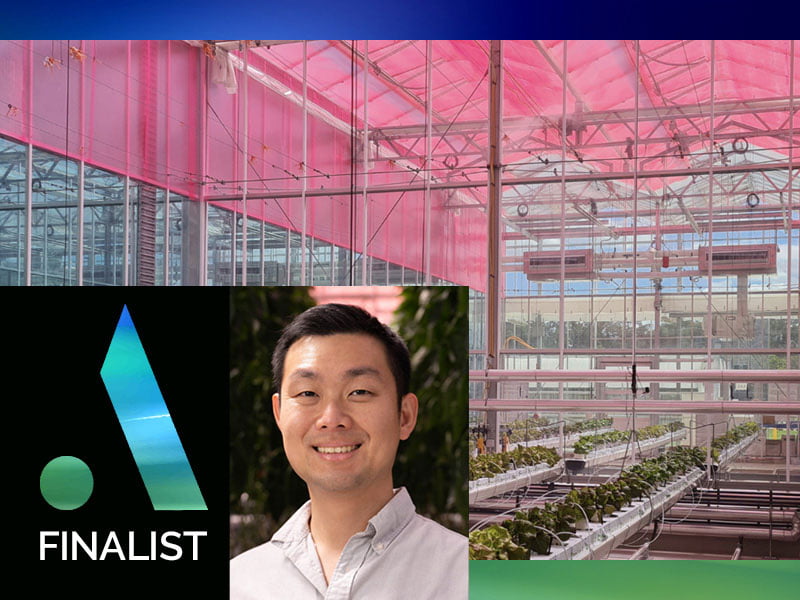The world needs to be able to feed 10 billion people by 2050.
This means that food production needs to double in less than 30 years in order to avoid widespread hunger and malnutrition.
To do this, there will need to be significant improvements in food production efficiency and effectiveness, and cutting-edge technology will be crucial to achieve this.
Sydney-based startup LLEAF is one of the tech companies aiming to help the world reach this important goal.

LLEAF has worked out how to engineer sunlight for the benefit of the agriculture industry, leading to increased yields and improved efficiency.
The startup specialised in the development of light spectrum shifting dyes to create colour conversion films, used in greenhouses to behave effectively as an additional light to help plants produce cellular energy.
This allows for crops to be grown in difficult environments where they usually cannot, and improve yields by up to 20 percent.
LLEAF is a finalist in the InnovationAus 2023 Awards for Excellence in the Food and Agritech category. You can secure your tickets to the black-tie event here.
LLEAF’s technology was developed by the company’s co-founders, Dr Alex Falber and Dr Alex Soeriyadi, who are both industrial chemists.
The pair combined their specialisations, in dye synthesis and polymers respectively, to create the core technology underpinning the company’s products.
It’s been a big 18 months for LLEAF, with government backing, a product launch and a multi-million dollar seed funding round.
The company developed its first commercial product at the start of last year, and then raised $3.5 million from a range of climate tech investors, the University of NSW and Cicada Innovations. Earlier this year LLEAF opened its first solar lab in Sydney.
The company’s technology combines the virtues of sunlight spectrum conversion and photovoltaics for use on agricultural properties and greenhouses, in effect improving the quality of sunlight provided to crops.
In trials so far LLEAF’s technology has led to a 20 per cent increase in strawberries, 37 per cent increase in bok choy and 27 per cent increase in lettuce.
Its technology is simple to install in existing or new greenhouses and can be done so in a range of ways depending on the type of building.
It is now selling the product around the world and holds a number of international patents.
The InnovationAus 2023 Awards for Excellence are proudly supported by Investment NSW, AusIndustry, Australian Computer Society, Technology Council of Australia, Agile Digital, CSIRO, TechnologyOne, IP Australia, METS Ignited and Q-CTRL.
Protecting your great ideas with intellectual property (IP) rights can lead to lasting benefits for your growing business. IP refers to creations of the mind, such as a brand, logo, invention, design or artistic work. Head to the IP Australia website to find out more about IP, and how it might help your business.
Reserve your place at the InnovationAus Awards for Excellence black-tie dinner by clicking here.
Do you know more? Contact James Riley via Email.
